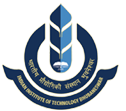|
Abstract:
With limited supply of fossil fuels and their adverse effect on the environment, finding materials to harvest and store clean energy is one of the greatest challenges in the 21st century. Solar energy is an ideal renewable source, but its harvesting and storage requires efficient, cost effective, and environmentally friendly materials for solar cells and batteries. This talk will focus on one class of such materials based on perovskites. Hybrid perovskites composed of organic cations and inorganic anions have emerged in the past few years as the next generation solar cells with power conversion efficiency reaching above 20%. However, the instability of these materials when exposed to moisture, is one of the most challenging problems. Using density functional theory and molecular dynamics simulation, we have analyzed the source of this instability and show how this can be overcome by replacing halogens with cluster ions, without compromising their electronic or optical properties. These cluster ions mimic the chemistry of halogens and have electron affinities that are either similar or greater than those of halogens. Similarly, antiperovskites which have been recently used as solid electrolytes in Li-ion batteries can be modified to increase their superionic conductivity. This is achieved by replacing alkali atoms with superalkali ions and halogens with superhalogens. A new class of solids with clusters as building blocks can usher a new era in materials science where rational design can lead to materials with unprecedented properties.
Biography:
Dr. Purusottam (Puru) Jena, Distinguished Professor of Physics at Virginia Commonwealth University received B. Sc. (Hons) and M. Sc. in Physics from Utkal University, India in 1964 and 1966, respectively, and Ph. D. in Physics from the University of California at Riverside in 1970. After postdoctoral and visiting appointments at State University of New York, Albany; Dalhousie University, Halifax, Canada; University of British Columbia, Vancouver, Canada; Northwestern University, Evanston; and Argonne National Laboratory he joined Michigan Technological University, Houghton as an Associate Professor of Physics in 1978. He moved to Virginia Commonwealth University, Richmond in 1980 where he was promoted to Full Professor in 1982. Dr. Jena has remained at VCU ever since with the exception of a year (1986-87) as a Program Director at the Materials Science Division of the National Science Foundation, and a year (2007-08) as a Jefferson Science Fellow and Senior Science Advisor at the US Department of State.
Dr. Jena’s honors include: Presidential Medallion from Virginia Commonwealth University (2011); Jefferson Science Fellow at the US Department of State (2007); David Hare Professorship lecture at the Indian Association for Cultivation of Science, Kolkata, India (2005); Fellow of the American Physical Society (2000); Outstanding Faculty Award from the State Council of Higher Education of Virginia (2001); University Award of Excellence (1993) and Outstanding Scholar Award (1987) from Virginia Commonwealth University; and Chair of the Gordon Conference on Metal-Hydrogen Interactions (1993). He has served as a member of numerous scientific panels at the National Science Foundation, Department of Energy, and Army Research Office. He was a member of the Executive Committee in 2003 that drafted the report on the “Basic Research Needs for the Hydrogen Economy” for the Department of Energy. He has also served on the Virginia Governor’s task force on green energy technologies and on the Presidential Commission on bilateral scientific collaboration between USA and Russia (2011).
|







